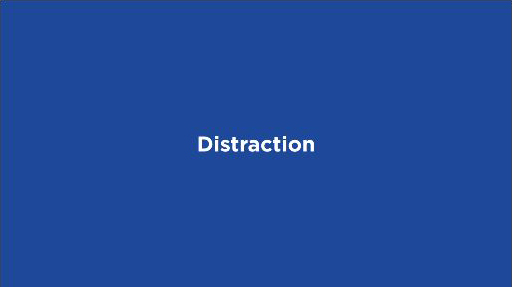3.1 Self-regulation
There is a growing body of research that demonstrates how problematic extensive social media use can be. In particular, it is now accepted that people can neglect important aspects of their life as a result of their social media use. Another estimate from 2018 suggested people spend an average of 24 hours a week online (Huffington Post, 2018 [Tip: hold Ctrl and click a link to open it in a new tab. (Hide tip)] ). This is more than the average part time university student is supposed to spend studying. Self regulation is key to managing social media use for education. Here Cath Brown explains how she manages her own social media engagement.

Transcript: Video 3 Distraction
Here Olivia Kelly also talks about how students manage their time on social media.

Transcript: Video 4 Time management
In both videos, Cath and Olivia talked about how people may find themselves ‘going down rabbit holes’ when on social media – meaning they end up in places they did not intend to go by just following what was on there. However, if you are worried about the amount of study time you might be losing to social media, don’t be too hard on yourself, as you will learn in the next section it might not all be your own fault!
Activity 5 The addictive nature of social media
Click on the aspects below and then reflect on the questions about the ways in which social media can be addictive.
- How can data in the form of a ‘life’ be used for social media companies?
- How does social media keep you scrolling through their apps?
- What does dopamine have to do with why you keep scrolling on social media?
Discussion
Understanding how social media is designed to be addictive, to keep you scrolling, can help you to understand how you need to work harder to self-regulate your behaviour. Every interaction you have on social media is intended to maximise the amount of time you spend on these apps. So, it is important that as the companies are not putting your best interests at the heart of their apps, that you learn how to take control of your own social media usage.
Here is a list of things you can do to help you self-regulate your social media use.
- Reduce your use gradually by setting a timer to prevent you checking your phone too regularly
- Reduce or remove the number of alerts that come directly through to your phone
- Try deleting any games or apps that are taking up a lot of your time
- Be mindful of the amount of time you are on your phone
- Restrict the number of people you follow
- Consider downloading a blocker app that restricts access to social media during certain hours
- Keep your phone away from you when you are trying to achieve something important
Pick at least three and add them into your Personal Social Media Plan.
In the next section, you will conclude this section on self-regulation by learning about an emerging area of research which can help you see the way that even a few seconds on social media can steal your attention.
